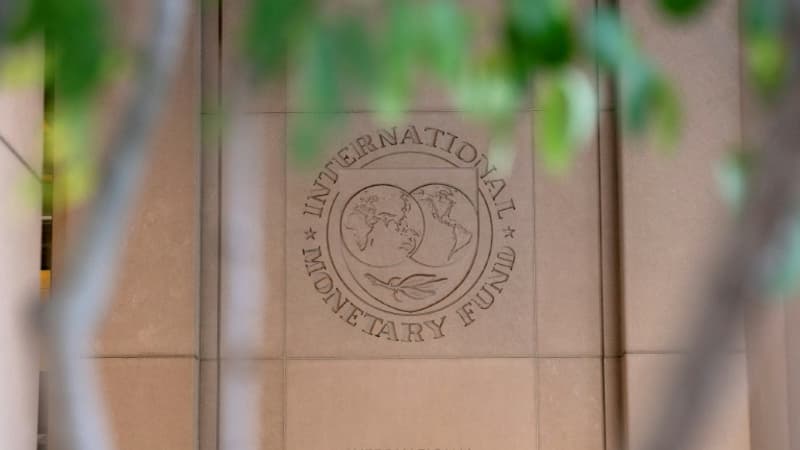The spring meetings of the International Monetary Fund (IMF) and the World Bank (WB) will begin on Thursday, after the publication this Tuesday of the world growth forecasts, in a charged climate, between the need for reforms, the repeated crises and the economy in suffering.
The update of the global economic forecasts will mark the unofficial start of the meetings at the headquarters of the two institutions in Washington, but the managing director of the IMF, Kristalina Georgieva, already gave an idea of the trend on Thursday. , with a global growth forecast below 3%.
In itself, nothing exceptional: during the last update, in January, the IMF already forecast growth of 2.9%.
weaker perspective
But this is likely to last, as the Fund does not forecast global growth above 3% on average per year by 2028 or, as Kristalina Georgieva reminded us, “our weakest medium-term outlook since 1990”.
At the end of March, the World Bank was even more negative, expecting global annual growth of 2.2% on average by 2030, the weakest decade in more than 40 years.
A significant slowdown, which occurs when the world is facing a series of unprecedented challenges, between the consequences of global warming, the risks of fragmentation of world trade or a generalized debt crisis.
To face it, a reform of the international financial institutions (IFI) is increasingly demanded by a certain number of States, the United States having declared itself in particular in this direction.
In an interview with AFP, Treasury Secretary Janet Yellen also recalled that she “wants a reform of the missions”, particularly the World Bank and its subsidiaries, to add “resilience to climate change, pandemics and conflicts between the core missions”.
“We want to carry out other reforms during the rest of the year, this will be part of the discussions in the next IMF meetings as well as in the annual meetings of the IMF and the WB in Morocco,” next October, he added. Janet Yellen.
most vulnerable countries
This development must begin with the regional investment banks and the World Bank, under the direction of their next president, a priori the US candidate, Ajay Banga, the only candidate.
However, it must intervene quickly: the ecological transition of emerging and low-income countries will require at least 1000 billion dollars per year for the next few years, recalled Kristalina Georgieva, a sum that the IFIs currently do not have the means to distribute.
This will require “our richest members to help fill the gaps” in terms of fundraising, he insisted, while Ajay Banga wants to bring in the private sector, once at the helm of the World Bank.
These issues will be among the main ones discussed during these spring meetings, and a first series of announcements should take place on this occasion, particularly on the borrowing capacities of the WB and its subsidiaries, Janet Yellen assured AFP.
debt crisis
This will not stop the IFIs from raising several other points of concern, starting with the risks of destabilization in the financial sector, if the fight against inflation pushes central banks to raise their rates even more.
Reducing inflation continues to be the priority, Kristalina Georgieva insisted on Thursday, for whom central banks “must do more to guarantee financial stability.”
The other consequence of this rate hike is that more and more low-income countries are coming closer to the risk of a debt crisis. This is already the case for 15% of them, recalled the CEO, and 40% of the others are close to this situation, not to mention emerging countries such as Tunisia, Pakistan or Ghana.
To face it, the IFIs will need more means, which their respective directorates will try to remind the representatives of the States in the coming days, if they want to avoid an even more difficult economic climate.
Source: BFM TV


